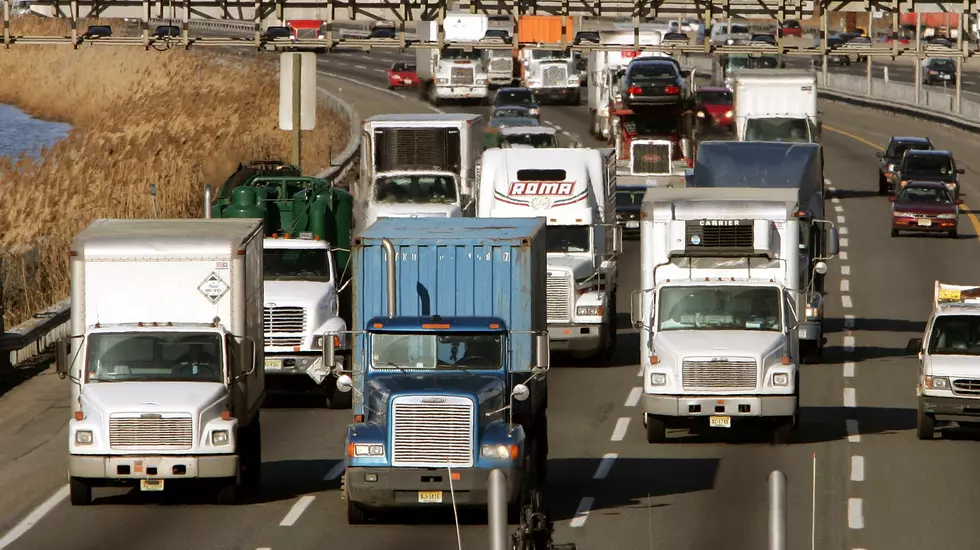
Trucking issue may affect Jersey consumers
It is a problem that is getting worse each and every day as the trucking industry faces a growing shortage of qualified drivers.
A new analysis from the American Trucking Association reports that the shortage has swelled to 48,000 and could balloon to 175,000 by 2024.
So what does it mean for the everyday New Jersey consumer?
The issue has created a ripple effect, which is passed on to all consumers.
"The driver shortage we're currently seeing is absolutely going to affect how freight gets moved across the country," said John Lay, owner of Brick-based Lay Logistics.
He said he is seeing the fallout every day across the industry, despite rock-bottom fuel prices.
"The consumer is already seeing the immediate effects on rates they'll see in stores because the shipping costs are not dropping, even with the fuel being lower," he explained.
Lay said those shipping costs are holding because there are fewer trucks available, less space on them, and more selective routes. That creates more demand, which impacts the price consumers are paying for products at the store.
"They're actually staying the same and, in some cases, even going higher, strictly based upon the lack of drivers and capacity, Lay said.
Gail Toth, executive director of the New Jersey Motor Truck Association, said it is getting tougher and tougher to find qualified drivers for a variety of reasons.
Those factors include an aging current workforce, industry growth, tougher federal and state regulations and fewer young workers entering the field.
She said it is imperative for them to appeal to younger drivers to show they can have a career in the trucking industry. There has been a major outreach to returning veterans.
"There's a big push to hire veterans," she said. "We really do need to reach that younger person that is looking for a career."
Toth said they are often in competition with the construction industry for younger workers. But, they are often handcuffed by stringent criteria required by the federal and state government to qualify as a driver.
That means having to hire workers who have had their license for a few years. They are also subject to drug testing, background checks, and fingerprinting.
"The most important key factor to the trucking industry is having a qualified truck driver behind-the-wheel," Toth said.
Toth can see the effects of the driver shortage industry-wide and believes it is going to get worse in the short-term, affecting New Jersey consumers.
"Eventually, if we can't solve this problem, you will start seeing delayed deliveries," she said.
Toth said that as transportation costs go up, so does the cost of everything that we purchase at the cash register.
"Pretty much everything that you buy comes by truck, at some point. So, there would be a delay in the supply chain."
More From New Jersey 101.5 FM


![New Trucking Rules Raise Concerns [AUDIO]](http://townsquare.media/site/385/files/2014/05/2864850.jpg?w=980&q=75)
![Truckers Lament Higher Costs Being Passed Down [AUDIO]](http://townsquare.media/site/385/files/2014/03/479326119.jpg?w=980&q=75)
![Customer Rage is Common, Survey Finds [AUDIO]](http://townsquare.media/site/385/files/2013/11/1568745731.jpg?w=980&q=75)
![Used Car Prices on the Decline [AUDIO]](http://townsquare.media/site/385/files/2012/02/usedcars.jpg?w=980&q=75)

![Shorter Shopping Season Means Big Win for Consumers [AUDIO]](http://townsquare.media/site/385/files/2013/08/Christmas2.jpg?w=980&q=75)
![Shutdown Tightens Americans’ Purse Strings [AUDIO]](http://townsquare.media/site/385/files/2012/08/EmptyWallet.jpg?w=980&q=75)
